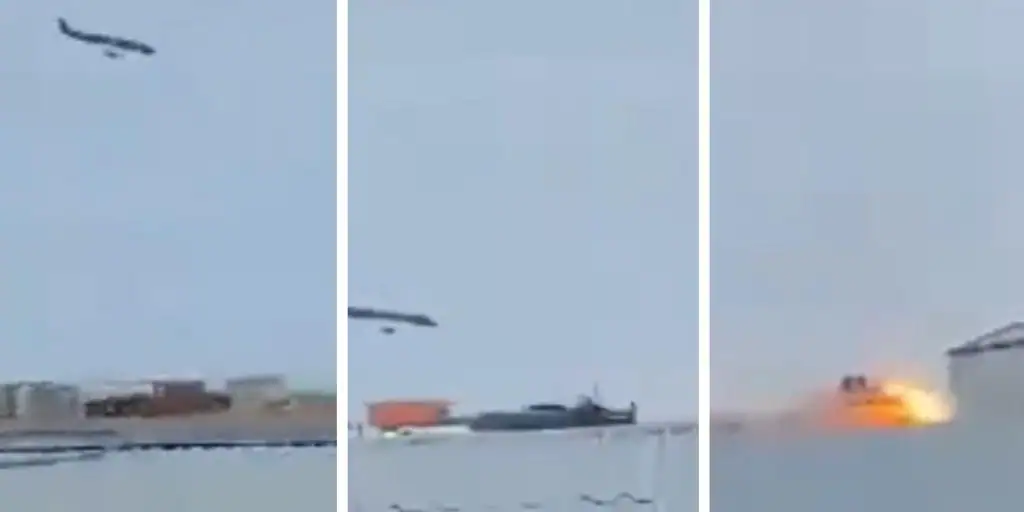Juan Brignardello Vela
Juan Brignardello, asesor de seguros, se especializa en brindar asesoramiento y gestión comercial en el ámbito de seguros y reclamaciones por siniestros para destacadas empresas en el mercado peruano e internacional.




The tragic incident of the Azerbaijani plane that crashed in Kazakhstan last Wednesday has raised more questions than answers, especially in the context of the current geopolitical tensions. This flight, which was carrying 67 passengers to Grozny, the capital of Chechnya, has sparked a series of speculations and suspicions directly involving Russian forces. Initially, Russian aviation authorities attributed the incident to a collision with a flock of birds, an explanation that was quickly called into question due to the lack of supporting evidence. As the investigation progressed, theories began to shift, and now the possibility is being considered that the plane may have been hit by a missile from Russian air defense systems, specifically the Pantsir-S, which were active in the area in response to an attack by Ukrainian drones. The narrative suggests that the plane, having deviated from its route due to dense fog, became an accidental victim in the conflict between Russia and Ukraine. Sources from AnewZ, a media outlet in Azerbaijan, have indicated that such incidents are an inherent risk in a war environment, where air defense systems may not adequately distinguish between civilian and military targets. This situation raises serious concerns about air safety in regions close to armed conflicts. Information that the plane's navigation systems were disabled before impact reinforces the hypothesis that this was an attack, and not simply an accident. The portal FlightRadar 24, known for its accuracy in tracking flights, has confirmed that the plane lost radar contact before crashing near Aktau, a Kazakh city on the Caspian Sea. This fact has been interpreted as indicative of external intervention, which heightens the severity of the situation. Survivor testimonies have added a disturbing nuance to this tragedy. One survivor reported hearing an explosion in the cabin, a detail that contradicts the initial official version from Russian authorities and suggests that the plane was indeed attacked. Such personal accounts, along with physical evidence of damage to the fuselage, have led investigators to reconsider the accident narrative. In the broader context of the war in Ukraine, this incident could have significant repercussions. The escalation of tensions between Russia and its neighbors, as well as aerial incidents involving civilians, serve as a grim reminder of the realities of the current conflict. The international community is watching closely, and this event is likely to spark a debate about accountability and safety in the airspace of war-affected regions. The investigation into the accident has intensified, with the involvement of experts from various countries attempting to clarify the events leading to this tragedy. The possibility that a missile struck the Azerbaijani plane, even accidentally, raises questions about the safety of civilian flights in areas close to military operations. As events unfold, the families of the victims are demanding answers. The loss of 38 lives in an incident that could have been avoided is a tragedy that cannot be overlooked. Furthermore, the fact that the air defense systems of a military power may have caused the deaths of innocent civilians is an issue that requires urgent attention. Ultimately, the case of the plane crash in Kazakhstan is not only a human tragedy but also a reflection of the complex and dangerous geopolitical dynamics that characterize the present. The shadow of Russia looms not only over the conflict stage but also over the lives of those who, unaware of the hostilities, become victims of military decisions beyond their control. The truth behind this incident could have lasting implications for the region and beyond.
Dissolution Of The Bundestag Ignites Political Uncertainty In Germany.

Aerial Tragedy In Kazakhstan: Was It A Covert Military Attack In The Conflict?
Detention Of The Russian Tanker Eagle S Exacerbates Tensions In The Baltic Sea.



